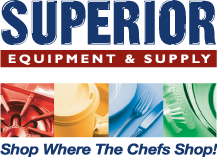Ensuring employees and staff have a safe place to work is one of the most basic parts of running a restaurant or foodservice operation—OSHA guidelines and store policies are in place to help minimize risk of injury, after all. But beyond basic concepts such as alerting employees and customers to wet floors, it’s important to train staff about safety in extended applications—such as during sampling or demo events, with new equipment, effective cold/hot chain management and the most current food-safety regulations. With proper training, staff and diners will both benefit.
Sampling and demo events: During sampling and demo events, food safety is a must, and for pop-up events, businesses may be using outside workers rather than their own staff. In these cases, it’s critical to train all workers so that they know protocol for safe food handling and safe food prep/serving. These workers should also be trained in customer engagement as they will have forward-facing roles. Being able to upsell potential customers can help boost check averages.
New equipment: When new equipment is brought into a restaurant or foodservice location, it’s crucial to train multiple employees-not just one or two. After all, there may at some point be the need for an alternate worker to use it, and if they are not trained on it, that can lead to a safety risk. This is particularly important with equipment such as slicers, ovens, stoves, industrial mixers and oil reservoirs/fryers. Proper equipment training can help prevent machinery injuries, which can cost retailers a lot of money in workers’ compensation claims.
Cold and hot chain management: Cold and hot chains—or, the process by which food is kept cold or hot—is key in foodservice at retail. Managing cold and hot chains can involve monitoring equipment as well as ensuring served food is the right temperature. Maintaining these chains is a direct result of employee training, since they will notice if there’s ever a problem. Of course, this ties into the need for training on food safety.
Food safety regulations: Proper training with food-safety regulations such as temperature standards and rotation requirements can help ensure that customers are eating safely prepared, fresh and craveable foods. Beyond that, staff that’s properly trained may be more perceptive when there’s something wrong, such as a refrigerator’s cooling system failing. Trained staff will likely notice when the temperature of an ingredient is too warm, for instance, and be able to alert management of the issue. Beyond saving the business money on preventive equipment maintenance, this can help prevent foodborne illness due to improper temperatures.
Getting help with foodservice safety: For foodservice operators, safety can be a lot to keep track of. In the kitchen, some of the most common injuries are caused by managing cooking oil—preventing burns, slips and falls and more. For retailers who need help managing it on their own, automated oil management and other safety solutions are available from Superior Equipment. Learn more about the solutions that can help save money and prevent injuries today.

